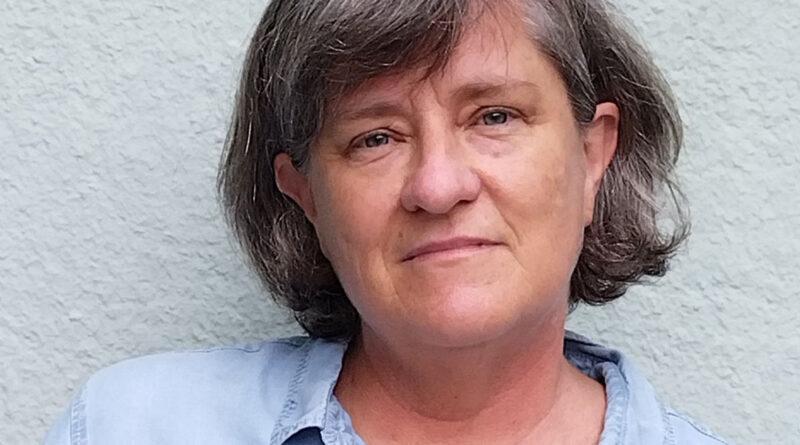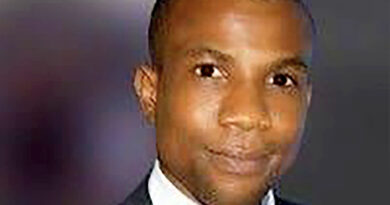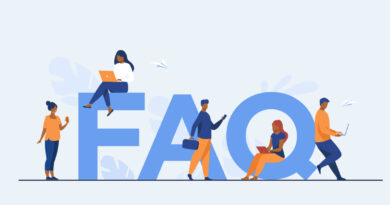Publishing and Money by Colleen Higgs
There is the old publishing joke, “How do you make a small fortune from publishing?” “You start with a large one.” But what if you had no fortune to start with? Like me, for example. Just a small pension you invest at the beginning and an ability to compartmentalize and the crazy unbridled optimism of someone who learns from her mistakes, usually, and who nevertheless despite countless setbacks is still irrepressibly optimistic. I keep thinking it is getting better, it will get better, easier.
Growing up, my gran told us that talking about politics and money was never done and though she didn’t say sex, that was implied. She called cancer “C,” as in “I heard that Mrs Smith has C” she’d lower her voice. As an adult, I am mainly interested in the things one isn’t supposed to talk about in polite conversation. So here goes.
Money. I have to think about money all the time, whether I like it or not, the flow of it, and how to keep generating it. How did I think I could have done something like start a small press with very little money? In the first five years, perhaps even ten years, I felt as though it was a calling, that like a sangoma I’d been called, and as such I had to do whatever it took to do the work. My views have changed about it being a calling – so now it is more challenging and painful even, as I take responsibility, and own my shortcomings and failures. I’m still always behind in payments, but do my best to keep up.
Money has been at the heart of my work as a publisher. Not enough money. Not ever. But somehow I’m still here 17 years later. Nothing is certain. Nothing is guaranteed, even for those who have financial reserves, which I don’t. However, coming clean about the money side of how I’ve operated is important, even if it feels more awkward than talking about some sexual fetish or secret predilection.
On social media and when I’m out in the world meeting people I have to sound like things are going well, and they are, but never financially. So in spite of the new titles, the website, the active social media presence, the authors winning awards, here’s the shadow side.
I’ve come to realise why most small, independent, literary publishers in the world are attached to larger institutions, are non-profits, or have other jobs and do their publishing part-time. But for some inexplicable reason, when I started Modjaji, I decided to try and make it work as a business. I had no experience of business or being an entrepreneur, perhaps this is why I made the decision, I didn’t know better.
The financial consequences of that decision, have weighed me down, overwhelmed me at times, the worrying and feeling guilty about all those I owe money to. The anxiety is an ever-present, unwelcome companion that I have learnt to live with. The worrying about money is a bit like hanging onto a piece of driftwood too far out from shore. The day-to-day survival mode makes it difficult to dive deep and think of larger, more long-lasting solutions and strategies. I live day-to-day, hand to mouth. And yet Modjaji and I both still exist. Money flows in. Money flows out.
At times I feel ashamed of how I have no money. It has been financially irresponsible to do what I have done. When I had a credit card it was always maxed out almost from the beginning of Modjaji. In 2019 I closed my credit card and paid it off. From 2011 to 2018 I went to the Frankfurt Book Fair every year, mostly with funding. And yet I’ve also been to Frankfurt with almost no money. Thankfully there were lots of parties in the evenings with drinks and snacks; often breakfast was included with the accommodation funding from the Department of Trade and Industry. Many of my fellow small publishers and I would make rolls with cheese and salami for lunch and take a piece of fruit from the breakfast buffet. We’d buy a two-litre bottle of water and fill it up in the public bathrooms, instead of buying water that cost the equivalent of R50 for a 250ml bottle. In 2017 the DTI put us up in a hotel where we had to pay for our own breakfast, so I went to the first day of the Fair without having had supper or breakfast, and I hoped I would sell some books. By late morning I had not sold any. One of the other publishers noticed me sitting at my table tears in my eyes, my shoulders slumped in despondency. He bought me coffee and bratwurst in a roll. His kindness cheered me, as did the food. I sold several books in quick succession soon after that.
Publishing is a cost-intensive business. Authors,manuscript readers, interns, editors, proofreaders, book designers, cover artists, illustrators, printers (the biggest bills), accountant, bookkeeper, website manager, PR costs, couriers (a big part of publishing is getting books delivered), and launch costs. All of these costs need to be paid months before money flows in for a book.
Every month as I paid the bond on my house and my daughter’s school fees it felt like a triumph, an achievement. But then I have to do it again the next month and the one after that. But I try not to dwell on it. Each month is a series of hurdles of bills to pay. Most days my bank account is debited for something. Bond, bank charges, interest, debt repayments, medical aid, house insurance, car insurance, and life insurance. Not to mention groceries, dog and cat food and vet bills. From the Modjaji account, Vodacom and then Afrihost for the website and internet, Google and Dropbox. Often I’m surprised and dismayed when the money I thought was there is no longer. I’ve become used to debit orders bouncing. This money ride is a lurching, jarring one. I long for a smoother, less frightening one.
Over the years I have developed additional income streams. There are rights sales, permissions, direct sales to authors, and pop-up book sales. I’ve given seminars on publishing and run writing workshops. I read manuscripts and advise individuals about their publishing projects for a fee. I see this work as “writing and publishing therapy.” I coach authors through the manuscript process. I create Special Offers on Facebook. Small subsidies have come from some writers who work at universities and who can access money from their research accounts to make a subvention payment towards their books. I started a hybrid imprint where authors pay most of the costs of the production of their books. Over the years we’ve received some funding from kind people and from a couple of funding agencies in South Africa, but never from the National Arts Council. I have now given up applying to them. In addition, I sold shares in the company to friends who also believe in the value of publishing southern African women writers.
Modjaji has also had some extraordinarily generous donations from kind benefactors for particular titles, and once a kind-hearted writer donated an airfare to Frankfurt for me in a year when the DTI funding didn’t come through. Leanne Johannson volunteered to work for Modjaji as she wanted to learn more about publishing; it was the year when Modjaji turned 15. I idly told her one day I’d love to do an exhibition of Modjaji covers to celebrate our 15th birthday. The next thing I knew, she’d figured out how to do it and offered to pay for it and organise the whole thing. That exhibition week was a high point in my work life, seeing all those beautiful covers on the walls, a reminder of the books, the authors, and the work. I was able to see what I’d done, what we had all done. I will never forget that incredible generosity and beauty. She held up a mirror for me. And we sold a lot of books to people who came to the exhibition opening and other events.
We crowdfunded one book – the beautiful A to Z of Amazing South African Women and successfully raised R100,000. It might sound like a lot, but producing a full-colour litho-printed book is very costly. And then we had a big order for the book from Transnet which pushed Modjaji over the limit into compulsory VAT registration territory, just because for that one year of 2017, our turnover was over a million, and Modjaji is still paying the price for that. And we continue to be liable for VAT.
Generous friends and family and some writers have loaned Modjaji money interest-free. Some service providers have donated their work. All these things have kept Modjaji Books and me afloat. I have learnt how to accept generosity from others, even to ask for help, and I’ve learnt humility and gratitude.
We crowdfunded one book – the beautiful A to Z of Amazing South African Women and successfully raised R100,000. It might sound like a lot, but producing a full-colour litho-printed book is very costly. And then we had a big order for the book from Transnet which pushed Modjaji over the limit into compulsory VAT registration territory, just because for that one year of 2017, our turnover was over a million, and Modjaji is still paying the price for that. And we continue to be liable for VAT.
Generous friends and family and some writers have loaned Modjaji money interest-free. Some service providers have donated their work. All these things have kept Modjaji Books and me afloat. I have learnt how to accept generosity from others, even to ask for help, and I’ve learnt humility and gratitude.
I’ve also made some tough decisions – for example, I decided that Modjaji wouldn’t pay royalties to poets. They get a generous discount on books that they can sell and are encouraged to sell books themselves at readings and to their networks. But any money that Modjaji makes from poetry goes into the Poetry Fund to make it possible to publish other poets. It is particularly hard to break even with poetry.
On Saturday I am travelling to Paris for an annual meeting I attend3. Being in Paris makes me feel poor. Like a third-world lumpen, as we used to say in the 80s. My old clothes, Doc Martens I bought in 1995, and my 4-year-old phone. Almost no money in my bank account. Should I even be going? I can’t navigate the Paris public transport system with a heavy suitcase (publishers always travel with books), a hopeless sense of direction and no French. I’ve tried it and the stress wasn’t worth it. I will need at least 150 euros for Ubers from and to the airport in Paris and one Uber ride within Paris.
Independent publishing without a large fortune is a nerve-wracking, anxiety-filled enterprise. It’s not for the fainthearted. But the non-financial rewards are immeasurable. I’ve met my people — writers, cultural activists and other independent publishers from all over the world. I’ve made a difference to what has been published in South Africa, to the authors whose books might not have otherwise seen the light of day, many of whom have won awards, and have been part of launching their writing careers. I’ve raised a daughter, put food on the table, paid school fees, and been present for her. Somehow I’ve managed and somehow I am still going.
A version of this article was published on A Wild Patience substack. Reproduced here courtesy of the author




